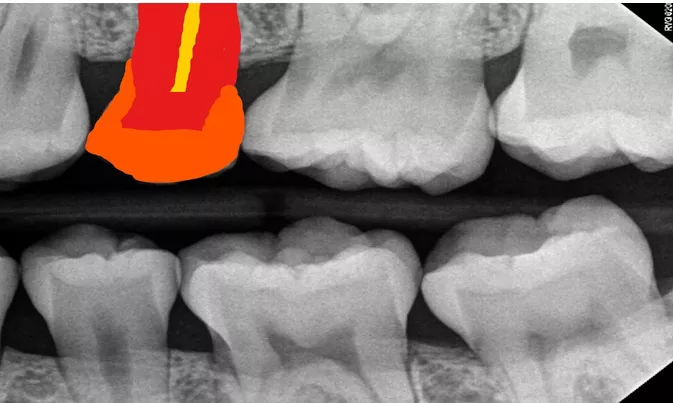Tooth decay, also known as dental caries or cavities, is a common dental issue that affects individuals of all ages. It occurs when the enamel, the outer layer of the tooth, is damaged by acids produced by bacteria in the mouth. These acids are a result of the breakdown of sugars from food. Early intervention is crucial in managing tooth decay effectively and preventing further complications. This article will explore the stages of tooth decay, treatment options, and preventive measures to maintain optimal dental health.
The Stages of Tooth Decay
Tooth decay progresses through several distinct stages.
Understanding these stages can help you identify early signs and seek appropriate treatment.
Demineralization: This initial stage is often reversible. It occurs when acids produced by bacteria begin to erode the enamel, leading to white spots on the teeth. At this stage, fluoride treatments can help remineralize the enamel and reverse damage.
Enamel Decay: If demineralization is not addressed, the enamel continues to weaken, resulting in small cavities or holes.
These cavities may not cause pain initially but require dental fillings for repair.
Dentin Decay: Once the decay penetrates the enamel and reaches the dentin (the layer beneath enamel), it progresses more rapidly due to dentin’s softer nature. This stage often requires fillings or crowns depending on the extent of decay.
Pulp Damage: If left untreated, decay can reach the pulp of the tooth, which contains nerves and blood vessels. This can lead to severe pain and infection, necessitating root canal therapy.
Tooth Loss: In extreme cases where decay is extensive and untreated, extraction may be necessary to prevent further complications in the mouth.
Treatment Options for Early Tooth Decay
When tooth decay is identified early, several effective treatment options are available:
Fluoride Treatments
Fluoride is a naturally occurring mineral that strengthens tooth enamel and helps reverse early signs of decay. Dentists can apply fluoride in various forms, such as gels, varnishes, or foams during routine visits.
Regular use of fluoride toothpaste at home also contributes to enamel protection.
Dental Fillings
If a cavity has formed, your dentist will remove the decayed portion of the tooth and fill it with a suitable material. Common filling materials include composite resin (tooth-colored), amalgam (silver), porcelain, or gold28. Fillings restore the shape and function of the tooth while preventing further decay.
Crowns
For teeth with extensive decay that cannot be repaired with fillings alone, crowns may be necessary. A crown is a custom-made cap that covers the entire visible portion of a tooth. This procedure involves removing decayed tissue and shaping the remaining tooth structure before placing the crown. Crowns can be made from various materials, including porcelain for aesthetics or metal for durability.
Root Canal Therapy
If decay reaches the pulp and causes infection or severe pain, root canal therapy may be required. During this procedure, your dentist will remove infected pulp tissue and clean the interior of the tooth before sealing it with a special filling material. A crown is typically placed afterward to protect and restore function.
Preventive Measures Against Tooth Decay
Preventing tooth decay is always better than treating it after it has begun. Here are essential practices to maintain good oral health:
Regular Dental Check-ups: Schedule dental visits at least twice a year for professional cleanings and examinations.
Dentists can detect early signs of decay that you might overlook.
Proper Oral Hygiene: Brush your teeth at least twice daily with fluoride toothpaste and floss daily to remove plaque from between teeth where toothbrushes cannot reach.
Dietary Choices: Limit sugary snacks and beverages that contribute to acid production in your mouth. Instead, focus on a balanced diet rich in fruits, vegetables, whole grains, and dairy products that promote oral health.
Use Dental Sealants: Dental sealants are thin coatings applied to the chewing surfaces of back teeth (molars) to protect them from decay by sealing out food particles and bacteria.
Stay Hydrated: Drinking plenty of water helps wash away food particles and bacteria from your mouth. Water also helps maintain saliva production, which neutralizes acids produced by bacteria.
Avoid Tobacco Products: Smoking or using other tobacco products increases your risk for gum disease and tooth decay due to reduced blood flow to gums and increased plaque buildup.
Recognizing Symptoms of Tooth Decay
Being aware of symptoms associated with tooth decay can prompt timely action:
Tooth Sensitivity: Increased sensitivity to hot or cold foods may indicate early decay.
Pain While Biting: Discomfort during chewing could signal deeper issues within a tooth.
Visible Cavities: Dark spots or holes on teeth are clear indicators of cavities.
Bad Breath: Persistent bad breath can result from bacterial buildup due to untreated cavities.
Conclusion
Tooth decay is a prevalent issue that can lead to significant dental problems if not addressed promptly. Recognizing the stages of tooth decay allows for timely intervention through treatments such as fluoride applications, fillings, crowns, or root canals. By practicing good oral hygiene habits and making informed dietary choices, individuals can significantly reduce their risk of developing cavities.
Regular dental check-ups play an essential role in maintaining oral health by allowing for early detection and treatment of any issues before they progress into more serious conditions. Remember that prevention is key; taking proactive steps today can save you from discomfort and costly treatments in the future.
Related topics:

